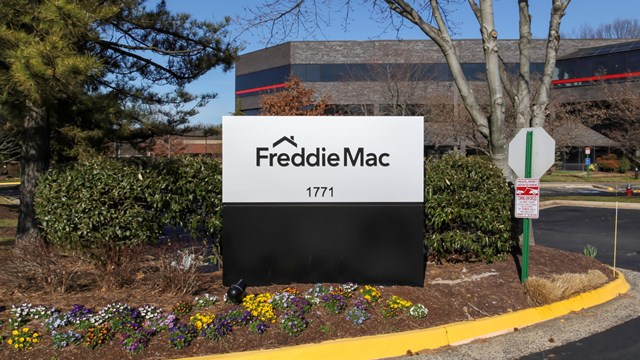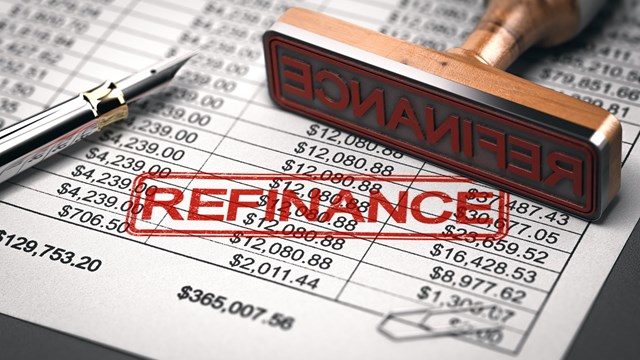
As every board member knows, a realistic budget is essential to the financial health of their co-op or condo. Creating a workable budget is not an easy task: while you can use the current year's budget as a jumping off point, many expenses must be estimated. Determining these numbers often feels like stepping into the unknown, as predicting expenses can prove difficult.
Creating a Budget
Every co-op or condo deals with two types of budgets: capital and operating. Capital budgets are long-term and exist to improve building conditions. The operating budget includes recurring expenses such as staff salaries, taxes, utilities, insurance and day-to-day building maintenance. All of these areas must be addressed when putting together the budget for next year.
While it is not always necessary for the entire board to attend the initial planning meetings, there are a few key players who should be involved in setting the annual budget. At the very least, the board president and treasurer, the managing agent, the head of maintenance and the bookkeeper should be present.
"New budgets are built on the foundation of the previous year's budget," says Jay Novet, president of Budget Saving Strategics in Great Neck, a consulting firm specializing in helping co-ops and condos improve their financial profile. "The task is determining the most realistic amounts to enter in anticipating the upcoming year's expenses. This is often up to 15 months in advance and must be done with limited information before the new budget's completion deadline.
"Serious work typically begins about six months before the deadline," says Novet. "This way a certain amount of current price information is available for at least rough estimates. When to begin should also be based on the depth of the job balanced by the number and ability of people involved."
While setting the budget should be an ongoing process, when you begin depends on your building and its needs.
"The optimum situation is devoting consistent meeting time through the year," says Novet. "The budget is the foundation upon which the fiscal health of the property, and everyone's investment rests."
"The budget is often created in the fall, with a goal of being in place by January 1," says Stephen Beer of Manhattan-based accounting firm Czarnowski & Beer. But even with the best intentions, the deadline isn't always met. "It depends on whether or not there are disagreements. And sometimes you don't have all the information you need and have to wait." In cases such as these, says Beer, boards will often have to play catch-up and apply any increases retroactively to the beginning of the year.
Depending on your building's particular needs and concerns, you might ask others to take part in budget meetings. But before asking for outside help from the building's hired attorney or accountant, consider tapping residents who are financial professionals for assistance.
"Many properties are fortunate to have financial people as residents," says Novet. "They can be called upon to participate. Because the property is also their investment, it is in their interest to be there. If they're not already participating, you can't go wrong drafting them. Their career titles typically are chief financial officer, VP of finance, tax lawyer, treasurer, controller, CPA, accountant or bookkeeper." He notes that having resident attorneys in these meetings also can be helpful.
Determining Costs
The annual budget takes into account fixed expenses (mortgage payments, basic fees) and easy-to-determine expenses such as payroll and union contracts and insurance fees. Beer notes that certain fees can be calculated by contacting your insurance broker to see where rates will go, utilizing the city's website for real estate taxes and checking utility websites to get an idea of projected costs.
Richard Montanye, CPA with Marin & Montayne LLP in Roslyn, agrees and suggests doing a "trend analysis" comparing several years prior and looking for patterns. "In some cases it will be necessary to contact contactors or suppliers to determine expected costs and establish a forecast for the coming year," he says.
"Real world prices can fluctuate before the new fiscal year ends," says Novet. "Budgeting becomes a science of predicting and estimating in a variety of ways." Another way to shed some light on unknown numbers is to compare the previous years' budgets with the final, actual expenditures.
The budget must also address what Beer calls variable expenses, such as anticipated repairs, which the managing agent or super should outline as part of determining the new budget.
"Government and insurer-related inspectors can impact budgets, as their demands must be complied with," says Novet. "Contractor work is typically a function of what has been allocated for in the capital budget. Emergency provisions for contractors should be in all budgets under a contingency category. Contingencies are wildcards. They can be of all extremes. Each board is encouraged to review all options available with their accountant. Doing so will help them balance the best approach for the realities of their property."
Some expenses are harder than others to anticipate. For example, the cost of fuel continues to rise and fall, but it's an expense that somehow must be figured into the budget.
"The price of fuel for the fall and winter seasons is once again the dicey question," adds Novet, who formerly had a 13-year career on Wall Street in which he consulted with substantial users of heating oil and those concerned about interest rate fluctuations. "Crude oil is the benchmark from which heating oil is priced. At the time President George Bush took office in 2001, the price was just below $20 a barrel. Last year it hit a high of $80. As of mid-May price was at $68."
Expect the Unexpected
Your building's capital budget should allocate funds for major repairs and maintenance. These funds will cover anticipated expenses in addition to any unexpected repairs or problems. But sometimes an emergency can leave boards scrounging for money or wondering how to cover a major expense.
Emergencies are unavoidable and are bound to happen. But you can prepare by looking at how funds are allocated in the operating and capital budgets, as well as investigating other methods of saving.
"A lot of buildings are trying to pass transfer fees, which are usually one percent to two percent of the sales price," says Beer. "This fee stays with the building when the owner leaves, and pays for the use of the components of the building while the person was there. It's like leaving something behind to pay for what that person used. It does make a difference, and when the market is moving, a building can acquire many transfer fees."
"I also recommend a long-term funding vehicle if a building does not have transfer fees. This would earn a certain percent per year, and would be part of the operating fund that is set aside," says Beer.
Novet advises that if a significant repair hasn't been adequately covered on the appropriate budget, and seriously impacts the budget's integrity, it must be addressed by at least one of two choices: (1) using the property's credit lines if they exist, or arranging for one if it doesn't; or (2) implementing higher assessment or maintenance charges or both. These can be implemented on a temporary or permanent basis.
"Reserves and contingency funds need to be established for such an event," cautions Montanye. In the case of severe issues, he continues, many buildings establish a credit line that can be repaid by way of assessment funds that are spread out over a longer term.
If you're lucky enough to have a surplus at the end of the year, there are several options for these additional funds.
"Normally, a surplus is put into the working capital - the operating or 'rainy day' fund - and stays there for use in the future," says Beer. "It will typically work itself into next year's budget unless it was an extraordinary surplus."
In such a case, it could be used to pay for specific expenses for a designated period of time. For instance, the funds could be directed to cover certain maintenance charges. "Residents might not have to pay for elevator maintenance for one year, but would have to pay the following year," says Beer.
Reducing Costs
As necessary expenses seem to skyrocket each year, cutting costs may seem almost impossible. However, a careful look at your budget might reveal areas where money could be saved.
"First, boards have to differentiate between discretionary and non-discretionary expenses. In a co-op, up to 90 percent of expenses can be non-discretionary, and boards don't have any control over those costs," says Beer. "Discretionary expenses can sometimes be cut. This could include some of your repairs."
For a list of required maintenance needs, and those that can be deferred, enlist the help of the building's super and managing agent.
"Look at expenses, such as repairs, and ask why they might have not been handled in house. Watch bills to see if an unusual amount of repairs are being billed for, instead of being handled by your super," says Beer. Many of these costs are dependent on the super's responsibilities. A super who handles many repairs in house could save the building money over the year and in the long run.
Montayne suggests another expense that adds up is all the overtime pay. "In the area of payroll, it is rare that a building is understaffed, especially if it's a union building," he says. "In those cases overtime should be eliminated and permitted only in emergencies."
"Reducing costs, juggling expenses and freeing up cash flow are the true challenges boards face yearly," says Novet. "The truth is many board members have full-time jobs, and typically spend their remaining time juggling long prioritized lists. An ideal solution to ending this vicious cycle is bringing in outside consultants to uniquely audit a property to identify ways to maximize the property's cash flow. They can provide recommendations that after implementation can deliver significant financial impacts," suggests Novet.
Getting the Word Out
Often, the treasurer will work with the managing agent before presenting a draft of the budget to the board. At this stage, the budget might also be reviewed by the building's accountant before it reaches the hands of board members.
It's likely that the entire board has not participated in the budget-planning process. If this is the case, the budget committee might choose one of several ways to distribute the new draft budget information.
"Budgets are distributed in ways distinctive to each property," says Novet. "This can range from putting it in envelopes at the door or mailbox, making it available at the management office, or going to the property's website and downloading it after entering a password."
Once the budget has been agreed upon, residents or shareholders are notified of any changes or increases. Depending on your board, residents might already be somewhat involved in or aware of any impending changes.
"Typically, offering plans only talk about annual financial statements and year-end tax deduction information. It's up to each individual board if they want to give residents more information than that. I think it's a good idea to share the plans because communication between the board and shareholders can break down," says Beer.
Sharing this information also offers the advantage of alerting the shareholders to any potential changes or maintenance increases, and the board's reasoning behind these changes. "People seem to accept bad news better if they understand it. If you give them the budget they'll know where it's coming from," says Beer.
Novet concurs. "As the community has a financial stake, it's a great idea for everyone to be involved with the key financial issues facing the property. This is especially so when they may be asked for higher maintenance and/or assessment charges," he says.
Stephanie Mannino is a freelance writer living in Erie, Pennsylvania.






Leave a Comment